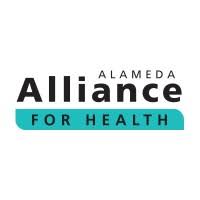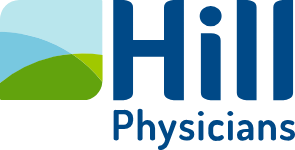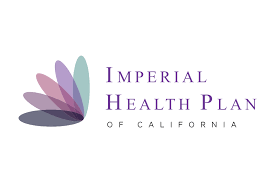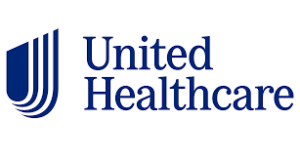Insurances Accepted
At Symphony Health, we also offer traditional primary care medicine to our patients.
Insurances Accepted
Are you tired of navigating the complexities of healthcare insurance on your own? Wondering how to make informed decisions without feeling overwhelmed? Our blog is here to simplify the world of healthcare insurance for you. From understanding different plans to maximizing coverage benefits, we've got you covered. Stay tuned as we break down jargon, provide expert insights, and empower you to take charge of your healthcare choices. Whether you're a seasoned pro or new to the game, our goal is to equip you with the knowledge and tools needed to navigate the realm of healthcare insurance with confidence.
Key Takeaways
Understand the basics of healthcare insurance to make informed decisions about your coverage.
Navigate the marketplace by comparing different plans and choosing one that suits your needs and budget.
Follow enrollment steps if you are new to healthcare insurance to ensure you are properly covered.
Pay attention to the financial aspects of healthcare insurance, including premiums, deductibles, and copayments.
Stay informed about healthcare insurance updates and changes to make adjustments to your plan as needed.
Tailor your healthcare insurance plan to your specific needs and preferences for optimal coverage.
Understanding Healthcare Insurance Basics
Quick start guide
To begin, individuals should check enrollment eligibility to ensure they qualify for healthcare coverage. Next, it's crucial to understand enrollment deadlines to avoid missing out on the opportunity to enroll. Lastly, learn how to apply for health insurance by following the application process provided by the insurance provider.
Plan options overview
When selecting a healthcare plan, it's essential to compare different plan options available to find one that suits your needs. Consider the benefits of each plan type, such as coverage for prescription drugs or preventive care. Evaluate the costs associated with each plan, including premiums, deductibles, and copayments.
Pay your premium
To maintain healthcare coverage, individuals must set up a payment schedule for premiums based on their financial capabilities. Explore the different payment methods available, such as online payments or automatic deductions from a bank account. It's crucial to ensure timely premium payments to avoid any lapses in coverage.
Navigating the Marketplace
Lost Medicaid or CHIP
Losing Medicaid or CHIP can happen due to changes in income, household size, or eligibility criteria. Finding yourself without coverage can be daunting, but there are alternatives available. Consider exploring options such as enrolling in a marketplace plan or seeking assistance from local resources.
When you lose Medicaid or CHIP, it's crucial to understand the reasons behind it. Common causes include increased income levels that exceed program limits or changes in household composition. Take the time to assess your situation and explore alternative healthcare coverage options to ensure continuous access to essential medical services.
If you find yourself without Medicaid or CHIP coverage, don't panic. Reapplying for these programs is possible. Gather the necessary documentation, such as proof of income and residency, and submit a new application promptly. Reinstating your coverage will provide peace of mind knowing that you have access to vital healthcare services when needed.
Find Local Help
Locating nearby healthcare insurance assistance can simplify the process of navigating the complex world of healthcare coverage. Local resources offer guidance on enrollment procedures, eligibility requirements, and available plans tailored to your specific needs. Seek out support from community organizations or healthcare facilities for personalized assistance.
When searching for local help with healthcare insurance, consider reaching out to community health centers, social service agencies, or insurance brokers in your area. These experts can provide valuable insights into available coverage options and assist you in selecting a plan that aligns with your healthcare needs and budget constraints. Don't hesitate to ask questions and seek clarification on any aspects of the enrollment process.
Accessing support for understanding healthcare options is crucial when faced with decisions regarding insurance plans. Local resources can offer valuable information on different coverage levels, provider networks, prescription drug benefits, and out-of-pocket costs associated with each plan. Take advantage of these resources to make an informed decision when selecting a plan that best suits your individual healthcare requirements.
Selecting the Right Plan
Assessing your healthcare needs is essential before embarking on selecting a suitable insurance plan. Consider factors such as anticipated medical expenses, preferred providers, prescription medications, and any existing health conditions when evaluating different plan options. By understanding your unique healthcare requirements, you can choose a plan that provides comprehensive coverage at an affordable cost.
When selecting a health insurance plan, carefully evaluate aspects like coverage limitations, deductibles, copayments, and coinsurance rates associated with each option. Compare the benefits offered by different plans against their respective costs to determine which one aligns best with your financial situation and medical needs. Seeking advice from insurance professionals can provide additional clarity on complex policy details and help you make an informed decision based on expert recommendations.
Enrollment Steps for Newcomers
Still need insurance
If you find yourself in a situation where you still need healthcare coverage, don't worry. There are options available to help you secure the insurance you need. Whether it's through employer-sponsored plans, government programs, or private insurers, there are avenues to explore.
Having insurance is crucial as it provides financial protection against unexpected medical expenses. Without insurance, a simple visit to the doctor or a hospital stay can lead to significant bills that may be challenging to pay off.
To get coverage outside of the typical enrollment periods, you can look into special enrollment periods (SEPs). These allow individuals to enroll in health insurance outside of the annual open enrollment period if they experience certain qualifying life events such as marriage, having a baby, or losing other health coverage.
Marketplace coverage
When considering marketplace coverage, it's essential to understand the different options available. The marketplace offers various plans with different levels of coverage and costs. You can choose from bronze, silver, gold, or platinum plans based on your needs and budget.
Marketplace insurance comes with several benefits, including access to essential health benefits like preventive services, prescription drug coverage, and mental health services. Marketplace plans must cover pre-existing conditions and cannot charge higher premiums based on health status.
Navigating the marketplace can seem overwhelming at first, but there are resources available to help you find suitable coverage. You can use online tools provided by the marketplace to compare plans based on costs, coverage options, and provider networks.
Application tips
To ensure a smooth health insurance application process, gather all necessary information beforehand. This includes personal details such as social security numbers for all household members applying for coverage and income information.
Accuracy is key when filling out your application. Double-check all information provided to avoid delays or potential issues with your coverage later on. Make sure to report any changes in circumstances promptly to ensure your coverage remains up-to-date.
Common mistakes to avoid during the application process include underestimating income levels which could affect your eligibility for subsidies or failing to disclose all household members who need coverage. By being thorough and accurate in your application, you can increase your chances of securing the right healthcare insurance for your needs.
Financial Aspects of Healthcare Insurance
Understanding tax info
Health coverage affects your taxes directly. Tax Form 1095-A is crucial for tax reconciliation. Reconcile tax credits for healthcare efficiently.
Saving on premiums
Discover ways to reduce insurance costs effectively. Check eligibility for lower premiums and extra savings options. High Deductible Health Plans offer money-saving benefits.
Avoiding penalties
Not having health insurance leads to severe consequences. Learn how to prevent healthcare coverage penalties. Explore available penalty exemptions for a smooth experience.
Staying Informed on Healthcare Insurance
Get important updates
Stay informed about changes in healthcare policies to ensure you are aware of any alterations that may affect your coverage. Receive updates regarding enrollment dates and deadlines to avoid missing important periods. Be vigilant about any modifications in healthcare laws that could impact your insurance benefits.
Using online resources
Utilize online tools to compare different insurance plans easily, helping you make an informed decision based on your needs. Access online platforms for enrolling in health insurance swiftly and efficiently. Explore various websites offering comprehensive information on healthcare coverage options available to you.
Policy changes impact
Understand how policy changes directly influence the coverage provided by your healthcare insurance. Learn how to adapt to policy modifications promptly to ensure continuous and appropriate coverage. Stay updated on any changes that may impact your benefits, enabling you to navigate potential challenges effectively.
Tailoring Plans to Your Needs
Unique health plans
Health insurance offers a range of specialized plans catering to diverse healthcare needs. These plans encompass various coverage options, including unique services tailored to individual requirements. Exploring non-traditional health plans can provide benefits beyond conventional offerings.
Consider opting for specialized health insurance plans that cater to your specific needs. These plans often include coverage for services not typically found in standard insurance packages. By selecting a plan that aligns with your unique healthcare requirements, you ensure comprehensive and personalized coverage.
Adjusting coverage
Modifying your existing healthcare coverage involves understanding the process of making changes to your plan. Whether you need to add new services or adjust existing ones, it's essential to grasp how adjustments impact your overall coverage. Reasons for adjusting your plan may vary from changes in healthcare needs to financial considerations.
To adjust your coverage effectively, familiarize yourself with the procedures involved in making modifications to your health plan. Whether you are upgrading or downsizing your coverage, being aware of the steps required ensures a smooth transition without compromising on essential healthcare benefits. Understanding why adjustments are necessary helps in maintaining optimal coverage.
Evaluating benefits
When evaluating different insurance plans, it's crucial to assess the array of benefits each plan offers. Understanding the specific benefits included in a plan allows you to determine its suitability for meeting your healthcare needs. Comparing benefits across various plans enables you to choose one that provides the most comprehensive coverage.
Assess the value of individual benefits within each insurance plan to gauge their significance in meeting your healthcare requirements. By comparing benefits such as preventive care, prescription drug coverage, and specialist consultations, you can identify the plan that best aligns with your specific needs. Evaluating benefits is key to securing adequate and tailored health insurance coverage.
Troubleshooting Common Issues
Application challenges
Navigating the healthcare insurance application process can pose various challenges. From complex forms to unclear requirements, applicants often face hurdles. Overcoming these obstacles involves careful attention to detail and patience. Seeking assistance from insurance agents or online resources can streamline the application process.
List:
Complex forms
Unclear requirements
Need for assistance from insurance agents or online resources
Coverage disputes
Dealing with coverage disputes is a common concern for healthcare insurance policyholders. Understanding how to address these disputes is crucial for ensuring adequate coverage. Resolving conflicts typically involves communication with the insurance provider and providing relevant documentation. Exploring alternative coverage options may be necessary in cases of prolonged disputes.
List:
Communication with the insurance provider
Providing relevant documentation
Exploring alternative coverage options
Renewal problems
Renewing healthcare insurance policies can sometimes lead to unexpected issues. It is essential to address renewal problems promptly to avoid gaps in coverage. Understanding common renewal challenges, such as premium increases or changes in coverage, is key to navigating the renewal process successfully. Seeking guidance from insurance representatives can help ensure a smooth renewal experience.
List:
Premium increases
Changes in coverage
Seeking guidance from insurance representatives
Maximizing Your Healthcare Insurance Benefits
Wellness Programs
Wellness programs are designed to promote healthy habits and lifestyles among policyholders. Participating in these programs can enhance your overall well-being by encouraging regular exercise and healthy eating habits. By engaging in wellness initiatives, individuals can reduce their risk of chronic diseases.
Promote healthy habits
Encourage regular exercise
Reduce the risk of chronic diseases
Preventive Services
Preventive healthcare services play a crucial role in detecting and preventing illnesses before they escalate. These services are often fully covered by insurance plans, including routine check-ups, vaccinations, and screenings. Accessing preventive care benefits can help catch health issues early and improve long-term health outcomes.
Detect and prevent illnesses early
Fully covered by insurance plans
Improve long-term health outcomes
Member Discounts
Health insurance plans often offer member discounts on various healthcare services and products. These discounts can include reduced rates for gym memberships, vision care, dental services, and more. Taking advantage of these member-exclusive offers can significantly lower out-of-pocket expenses for medical treatments.
Reduced rates for gym memberships
Savings on vision care and dental services
Lower out-of-pocket expenses
Future of Healthcare Insurance
Trends to watch
Staying informed about emerging trends in healthcare insurance is crucial for making informed decisions. Understanding how industry trends may impact your coverage can help you anticipate changes. Keeping an eye on developments that could affect your insurance options ensures you stay ahead.
Stay updated on new insurance models.
Monitor changes in pricing and coverage options.
Exploring how technology is changing the healthcare insurance landscape reveals exciting possibilities. Technology plays a significant role in improving insurance processes, making them more efficient and accessible. Learning about tech tools that can enhance your healthcare experience empowers you to navigate the system effectively.
Utilize telemedicine services for virtual consultations.
Access health apps for tracking medical records and appointments.
Technology impact
Predicting future trends and changes in healthcare policy allows individuals to prepare for potential shifts in coverage. Anticipating how upcoming policies may affect healthcare coverage helps individuals make informed choices about their insurance plans. Staying updated on potential policy shifts and their implications ensures individuals are proactive in managing their healthcare needs.
Research current policy proposals and debates.
Consult with experts or advisors for insights on policy changes.
Closing Thoughts
You've now mastered the ins and outs of healthcare insurance, from understanding the basics to maximizing your benefits. By navigating the marketplace, enrolling effectively, and tailoring plans to your needs, you're well-equipped to make informed decisions. Remember, staying informed is key to ensuring you get the most out of your healthcare coverage. As you troubleshoot common issues and ponder the future of healthcare insurance, keep in mind that knowledge is power in this complex landscape.
Take charge of your healthcare journey by staying proactive and well-informed. Your ability to navigate the intricacies of healthcare insurance will not only benefit you but also empower those around you. Stay curious, stay engaged, and continue optimizing your healthcare insurance for a healthier and more secure future.
Frequently Asked Questions
What are the key components of healthcare insurance?
Healthcare insurance typically includes coverage for medical services, prescription drugs, preventive care, mental health services, and maternity care. Understanding these components can help you make informed decisions about your coverage.
How do I choose the right healthcare insurance plan for my needs?
Consider factors like premiums, deductibles, network coverage, and additional benefits when choosing a plan. Assess your healthcare needs and budget to select a plan that offers the best balance of coverage and affordability.
Can I change my healthcare insurance plan after enrollment?
In most cases, you can change your healthcare insurance plan during the annual open enrollment period. Certain life events, such as marriage or having a baby, may also qualify you for a special enrollment period to make changes to your plan.
What should I do if I encounter problems with my healthcare insurance coverage, doctors, terms, association, and matters?
If you experience issues with your healthcare insurance coverage, reach out to your insurance provider's customer service for assistance. They can help clarify coverage details, address billing concerns, and guide you on resolving any problems effectively.
How can I stay updated on changes in healthcare insurance policies?
Staying informed about changes in healthcare insurance policies is crucial. Regularly review updates from your insurer, follow reputable healthcare news sources, and consider consulting with an insurance agent or broker for expert guidance on policy changes.











